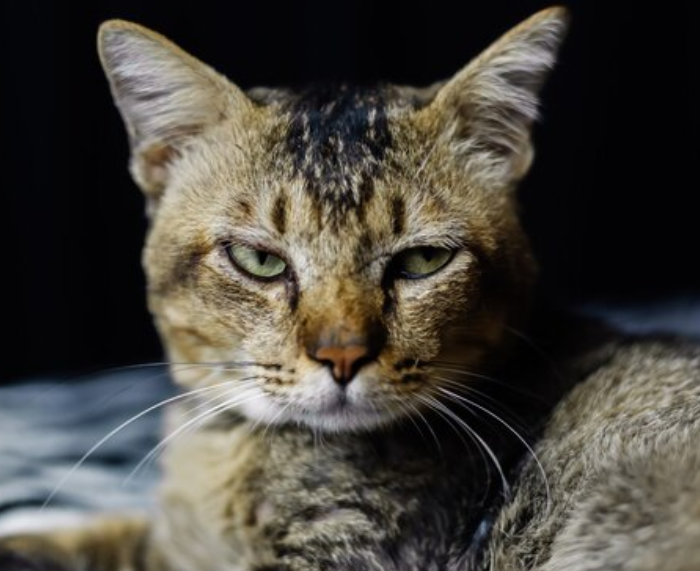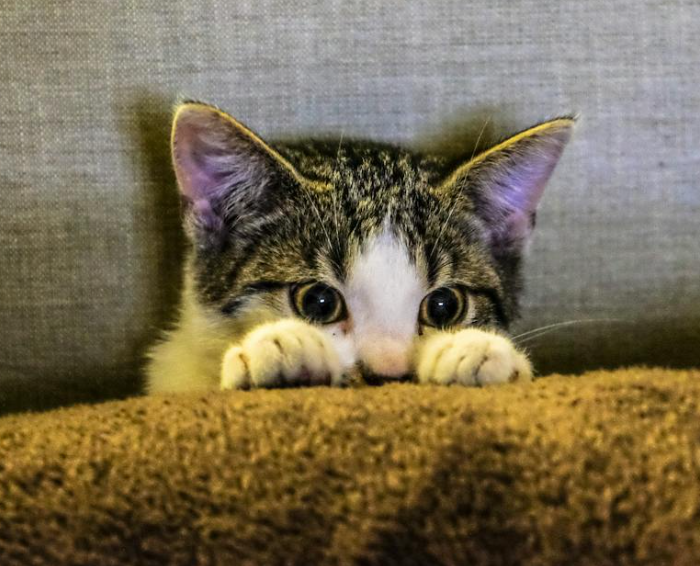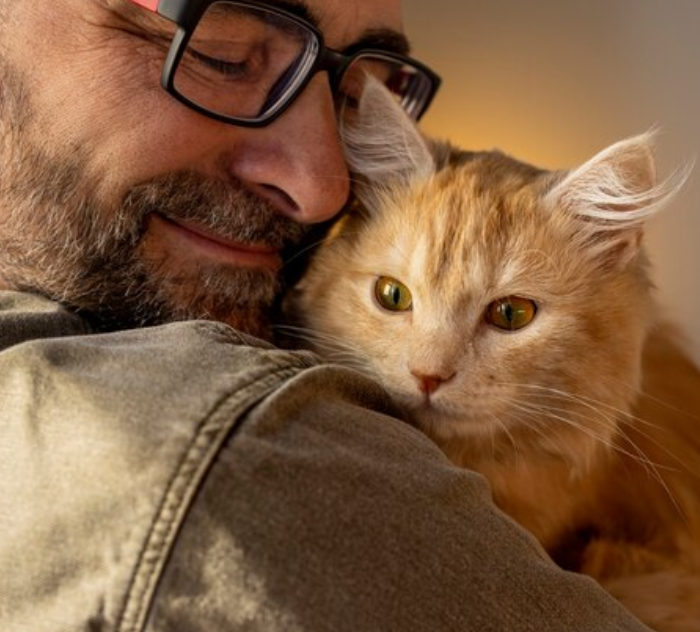2024-01-22
Sometimes it is the serious things that make us hold a grudge, i.e., being lied to (especially by close ones), disrespected, physically or emotionally abused, etc. Other times it could be the things that look small but are, in fact, hurtful to us such as not being responded to, invited to a party, or otherwise feeling ignored or neglected. Some of us can hold a grudge for a lifetime depending on the individual’s temperament, personality, and particular situation.
When it comes to our pets, especially our feline friends, even the thought of them holding a grudge against us, because of something we did, is frustrating.
Many cat owners may have already experienced a situation when their cats seem to have held a grudge against them for various reasons, i.e., they returned home later than usual and did not feed their cat on time; they accidentally stepped on their cat’s tail; they slightly brushed against their cat while moving their arms in an attempt to hug them, etc. Regardless of the particular situation, the resentment that our cats seem to feel towards us when they feel neglected, ignored, or in any way hurt, is apparent.
But is it a grudge that our feline friends may hold against us?
When talking about a grudge, we usually understand a constant feeling of resentment that we can not get rid of, because of an insult, trauma, injury, or anything that made us feel bad physically or emotionally. We channel this resentment towards the person/people/things who made us feel that way. When we are holding a grudge against someone, we usually get caught up in our thoughts and overthink the event/accident over and over again.
It is believed that the most common reasons for holding a grudge are: being rejected by a love interest, being fired or not getting the job that the person has applied for, and receiving poor customer service.
Did you know that on average people are likely to hold a grudge for five years...It’s quite a long time, isn’t it?
If we think of the process of holding a grudge superficially, it can be perceived as ineffective and even illogical/irrational for us. It is simply not productive.
Research has proven that holding a grudge is a very complex process that takes much energy to be maintained. Even more shockingly, surveys have shown that several different parts of the brain are included in this process. Since the human brain spends so much energy and resources on this, there should be some benefit, shouldn’t it?
It is believed that holding a grudge is evolutionary inherited and may have benefits for us in terms of survival. It might help us identify which of both options is more useful- taking revenge or keeping a relationship with the person who did us wrong in the past as it may be beneficial for us in the future.
Considering the information provided above, the following questions arise: Is it the same with cats? Do they overthink certain events that have made them feel bad which makes them evaluate the future of their relationship with their humans?

Cats are magnificent, agile, and beautiful creatures of nature that have won our hearts! Despite how much we adore them though, we can not deny that they are not as complex as we are, nor do they have the same cognitive skills as humans.
Cats don't hold a grudge in the same way humans do. While our feline friends have great associative memory that helps them remember certain events and pair them with each other, their emotional and cognitive processes are different from ours. Cats mainly rely on their strong instincts and past experiences to identify potential triggers and threats in their environment.
If a cat displays avoidance or behaves defensively, it is likely to be in an immediate response to an unpleasant experience, and not a sign of a grudge. It is unlikely for our paw friends to harbor negative emotions in the long term. They are very sensitive though, so if there are any changes in their environment, such as new people, animals, or experiences they find unpleasant, they are likely to react negatively.
For instance, if you step on your feline friend’s tail by accident, they are likely to avoid you for some time. This is a normal instinctive reaction to a potential threat in the environment (in this case, your feet have hurt your cat’s tail). Also, this reaction is likely to be caused by the excellent associative skills of our feline friends- your feet is associated with pain and should be avoided.
For you as a cat owner, on the other hand, this behavior might be perceived as a sign of punishment for your actions. Many of us may have apologized to our cats at least several times because of such accidents. Not to mention all the negative scenarios that may have crossed our minds featuring our cats never loving us again...
The truth is that holding a grudge is simply unproductive and, thus meaningless for cats. Associative memory, on the other hand, serves as a protective mechanism, that has helped cats survive. Also, as mentioned above, emotional and cognitive processes in cats work differently from ours and are not as complex as ours.
If you work on creating a positive environment for your paw friend, and take time to interact with them (properly) while respecting their boundaries and individual preferences, you will make sure that your kitty won’t have any reasons to show avoidance. This approach will help you gain your cat’s trust, and will also ease the process of adjustment to any changes in the surroundings.
Another thing to consider is that, unlike humans, cats are not very social creatures. They do not have the ability to manage conflicts as humans do. They are often more inclined towards avoiding confrontation and may show behaviors such as hissing, growling, or posturing to communicate discomfort or establish boundaries. However, cats are also territorial animals, so conflicts can occur if they feel their territory is being invaded or their boundaries- overstepped.

We have already learned that the concept of holding a grudge in cats is different from the same in humans. It is the strong associative memory of cats and their instincts that cause them to react in a certain way making them seem avoidant.
However, if the stimuli in the environment / the perceived offense is severe and frequent, then this might lead to a consistently negative response in your cat for an extended time. For instance, if you have to bring your cat to a veterinarian quite often or if you step on their tail every day, then these negative experiences will accumulate over time.
On the other hand, if it is a one-time experience or an event that occurs very rarely, then the negative experience will fade over time and the normal interaction with the owner will be resumed.
Moreover, individual temperament plays a significant role in a cat's ability to forgive and forget. Some cats are naturally more forgiving and adaptable and move past unpleasant incidents more quickly. Others may be more sensitive or territorial, making them prone to holding onto negative experiences for a longer time.
The quality of the relationship between a cat and their owner is another crucial factor. Cats are known for forming strong bonds with their owners, and a secure, trusting relationship can help accelerate the process of forgiveness. Regular positive interactions, such as playtime, grooming, and affectionate gestures, contribute to strengthening the bond. This, in turn, facilitates quicker resolution of conflicts.
It's important to note that cats communicate their emotions through their body language and vocalization. Tail position, ear posture, and vocal cues can indicate whether a cat is still harboring resentment or has moved past a perceived offense. Understanding these cues is essential for cat owners to maintain a strong bond with their feline friends.
Keep in mind that while your feline friend may display grudge-like behaviors, they have the ability to move past negative experiences. With time, positive reinforcement, and affection the relationship with your feline friend will endure. And why not be brought to a deeper level?